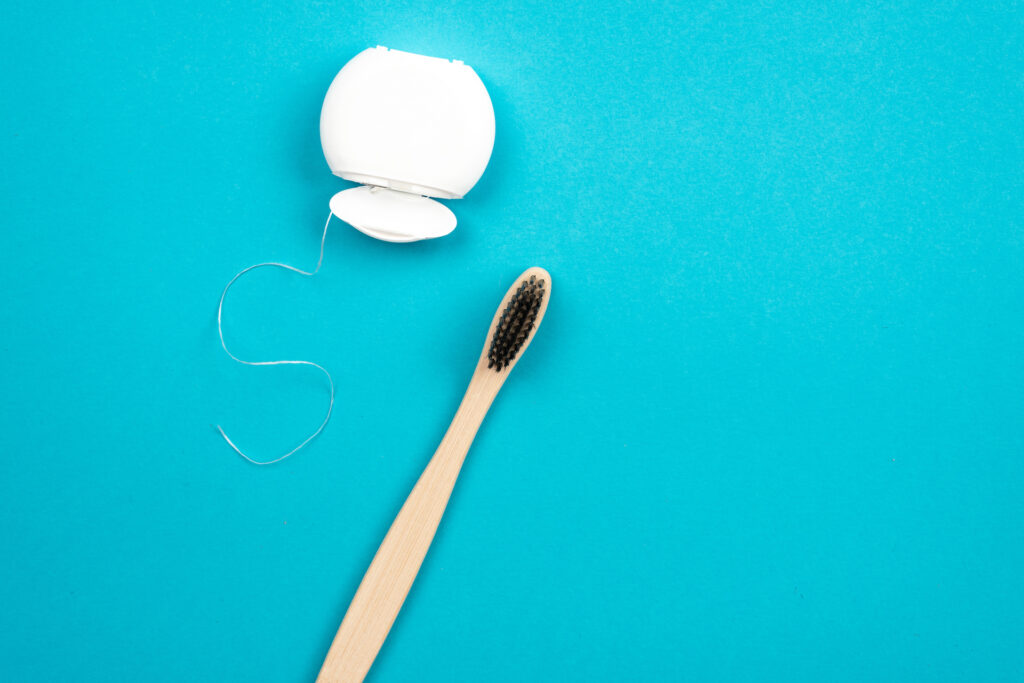It can be scary to have bleeding gums after you floss, but this isn't always a sign of serious trouble. If your gums bleed when flossing, it could be a sign of common oral health issues your dentist can help with that are not as serious as gum disease. It could also simply be the way you've been flossing. Here are six of the most common causes of bleeding gums.
Bleeding gums have a lot of causes ranging from probably not a big deal to something very serious that needs to get checked. Reasons you might have bleeding gums include the following.
- Bacterial Buildup
Bacteria live all over your mouth and your gums will try to flush them out if they can. When you brush or floss, especially if you remove tartar or plaque buildup, your gums can bleed to flush the tissues and protect the site. This is more likely to happen when it's been a while since you've had a cleaning or if you have an infection causing gum inflammation. - Your Flossing Technique
Improper technique is one of the most common reasons for bleeding gums. If you're pressing too hard or scraping the surface of the gums, you can get small wounds that bleed for a bit. Brushing too hard also causes bleeding gums sometimes. Your brush might be too stiff or you could be pressing too hard for your gums, which can also cause bleeding. - Badly Fitted Appliances
Dentures and braces can both cause bleeding gums. If they're not fit quite right or if you have a loose wire somewhere, you might get a bit of blood sometimes. This is most likely to happen after you brush or floss because you might be pushing the loose bits of the braces into a soft spot on your gums. - Changes in Your Blood
Certain hormonal changes can make you more likely to bleed from the gums. Pregnant women sometimes experience bleeding gums without an obvious reason, as can people taking blood thinners and some other medications. People who have clotting disorders, such as hemophilia, might also experience bleeding gums from time to time. - Gum Disease
Gingivitis is one of the most common diseases in the world, and huge numbers of people have at least some gum irritation caused by infection or tooth decay. If you have periodontal disease like this, you might also have a puffy, red-looking gum line that aches or itches. Bleeding at odd times, not just while flossing, can also be a symptom of gum disease. - Vitamin Deficiency
Gums can bleed because you have a vitamin deficiency. Scurvy is caused by a lack of vitamin C, which is really rare in the Western world these days. Vitamin K deficiency can also show up as bleeding gums.
Is it Normal for Your Gums to Bleed?
Your gums can bleed for a lot of different reasons, and thankfully it's usually not serious. Most people experience at least occasional gum bleeding from time to time, and if there aren't other signs of trouble, it's probably not a symptom of major health issues. You're especially likely to notice some bleeding from your gums if it's been a while since you've regularly flossed or if you have tartar buildup on the gum line.
How Long Does It Take for Gums to Stop Bleeding When Flossing?
It's pretty normal for gums to bleed if you're not in the habit of flossing, but this doesn't last forever. As a rule, your gums should stop bleeding after 1-3 days of regular flossing. If your gums are bleeding for longer than this, it's a good idea to book an appointment to have a dentist take a look to make sure everything is okay.
Even if it's been a while since you fell out of the habit of daily flossing, good brushing techniques can help keep bleeding gums to a minimum. Twice-daily brushing helps promote healthy teeth, and the gentle massaging of the gum line helps stimulate healthy blood flow and firm up the gum tissue and reduce bleeding.
What's the Right Way to Floss?
There's definitely a right way to floss, which can help keep gum disease under control and reduce gum inflammation. First, pull a length of about 18 inches of dental floss and wind it around the middle fingers on each hand. Pinch the floss between your thumbs and index fingers with 1-2 inches between them. Gently work the floss between two teeth with a gentle zig-zag motion until it's seated well between the teeth, and be sure not to let it snap into the space. Bend the floss around the first tooth in a C shape and gently scour off the plaque, starting at the gum line and working outward. Floss up and down each tooth, getting the back of the teeth as well, and try to get a little under the gum line.

How Often Should You Floss Your Teeth?
The American Dental Association (ADA) recommends flossing at least once a day to promote good oral health and prevent gum bleeding. You can floss more often, of course, and the ADA suggests doing it right after you eat. This helps get at the plaque between teeth and fights tooth decay, bad breath, and a number of other issues like gingivitis.
Do I Have Gum Disease?
It can be hard to tell if you have gum disease, and only your dentist can tell you for sure if that's what's making your gums bleed. Symptoms of gum disease include swollen, sensitive, or bleeding gums.
How Your Dentist Can Help
Your dentist is a vital part of good gum health. Together with a dental hygienist and other teammates, your care team can give you good advice about why gums bleed, how to floss the right way, and when it's time for a professional dental cleaning.
Other Bleeding Gums Remedies You Can Try
If your gums bleed when you floss, you can try a few things to keep healthy gums. Brushing twice a day is important, along with regular flossing. Use a soft toothbrush that doesn't irritate your gums as much as a stiffer brush would, and try massaging your gums in gentle circular motions to promote healthy circulation and good gum health.
Now that you know why your gums bleed when flossing, we'd like to help you take care of your teeth. Book an appointment at one of our convenient locations so we can determine what the root cause of your bleeding gums is. We offer interest-free payment plans with no credit checks to make family dentistry easy to reach for everyone.
Frequently Asked Questions
The most common vitamin deficiencies to cause bleeding gums are vitamins C and K.
Bleeding from the gums at random times with no apparent cause might be nothing, or it could be a sign of a serious health concern. Book an appointment with a dentist without delay to discuss what might be happening.
How long it takes for gums to heal depends on how seriously they're injured. Bleeding from flossing should stop in 1-3 days, and bleeding that goes on longer than that should be looked into.
In addition to the many other health issues smoking causes, the irritating chemicals in tobacco smoke can trigger gingivitis and even loosen the gums' grip on teeth over time. This accelerates tooth decay and tooth loss, requiring restorative dentistry to fix.
Long-term stress has effects all over the body, from elevated blood pressure to a weakened immune system. This can show up as bleeding gums sometimes.
Foods containing omega-3 fatty acids, such as salmon, sesame seeds, macadamia nuts and pistachios, have anti-inflammatory properties. Because most bleeding gums are inflamed, the thinking is that omega-3 doesn't hurt, but the science is still out on how helpful it can be.

